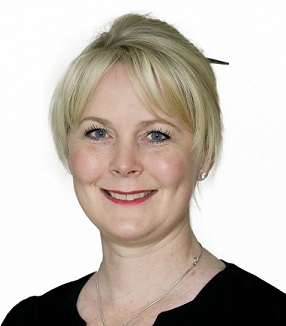
Niamh Duddy
Company Secretary at Investec Ireland
Company secretary for Investec in Ireland, Niamh Duddy completed the UCD Diploma in Corporate Governance at UCD Smurfit School in June 2017.
Tell us a bit about your career path and experience to date on boards
I started my career as a legal PA to a partner in a law firm and later became a company secretary. Before joining Investec in January 2013, I held senior company secretarial positions with Prudential plc and Wilton Group, working in London and Dublin.
I’ve always worked in a strong corporate environment, which has helped me develop good commercial acumen in addition to the technical expertise that training and qualifying as a company secretary brings.
As company secretary for Investec in Ireland I have responsibility for all aspects of corporate governance and company law compliance across the Irish group. Being a key advisor to the board of directors, I have gained extensive experience in developing and managing corporate governance frameworks, managing and mitigating the associated risks, and developing and enhancing board processes and controls.
Why did you decide to do the UCD Diploma in Corporate Governance?
I knew I brought a strong technical background to my role in Investec through my training and experience as a company secretary but I wanted to enhance my knowledge in the areas of management and strategy.
What was your experience of the programme?
The quality and expertise of the faculty at UCD Smurfit School is so impressive and really surpassed my expectations.
For me, it was the peer-to-peer learning experience that created the real value. I was privileged to have participated on the 2017 programme alongside a group of very high calibre individuals from a diverse range of backgrounds, all of whom brought a wealth of knowledge and experience to the debate.
That peer-to-peer learning and simulation of the boardroom experience, together with the technical expertise and materials the academics provided, will place us very well for future non-executive roles.
What impact has the diploma had on your work?
It has provided me with the necessary knowledge and skills to carry out the very onerous duties and responsibilities of a company director. And I think I am now more focused on the impact of assumptions and the value of having many different approaches and experiences around a boardroom table, particularly in the current environment where challenge seems to be a constant for boards.
As well as my day job, I am a council member for the governing body for chartered secretaries in Ireland – the Governance Institute (ICSA). It's a not-for profit organisation that is effectively the qualifying body for chartered company secretaries internationally.
While it’s not a commercial environment we are equally accountable to our members for upholding the highest standards of corporate governance in everything we do. Doing the UCD corporate governance diploma has helped me in relation to that role as well.
What in your view are the main challenges for boards at present?
From an economic and macro environment perspective, I think the slowdown in the global economy, political uncertainties, Brexit and IT and cybersecurity risks are core issues for boards at the moment.
Another big challenge is that the size of board agendas has grown exponentially over the last number of years – partly to keep up with the pace of legislation and regulation, but also because the external operating environment is constantly changing. The quality of the information the board gets is so important in going some way towards mitigating that challenge.
What do you see as the biggest challenge for board members?
It is around the decision making process and getting the appropriate information to be able to assess the risks and make the right decisions. It really is fundamentally important that management understands the importance of the information they’re presenting to boards and that non-executives are there to bring an objective and independent view and, from time to time, complement that management information.
How important is diversity on boards?
Diversity is so important and it’s something I’m quite passionate about. It’s not just the gender diversity piece – and Better Balance for Business and 30% Club Ireland have done exceptional work in this area in recent years. It also encompasses diversity of skills and thought, which I think is derived from an individual’s experience, culture, social background, nationality and age. All of that brings greater depth to the discussions and contributes to robust decision making, which in part contributes to an effective board and mitigates against the risk of groupthink on boards.
Do you have plans to join other boards as a non-executive director?
That’s certainly something I would like to pursue. I undertook the programme to focus on certain areas for my day-to-day role. But a long term objective was to get me boardroom ready and the programme really does equip you with the skills necessary to take your next seat at the boardroom table. So hopefully, at a point in the future, I will take on a non-executive role.
Would you recommend the programme?
I would highly recommend it and indeed intend to embark on other executive development programmes with UCD Smurfit Executive Development.











